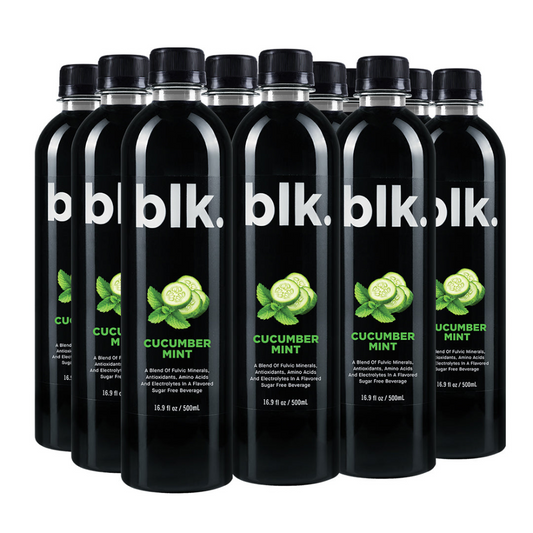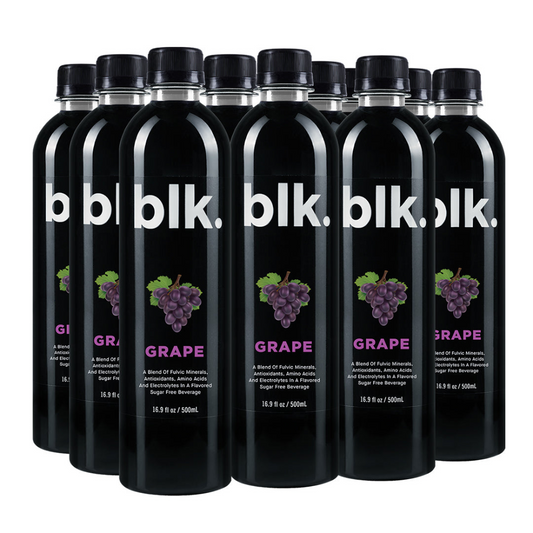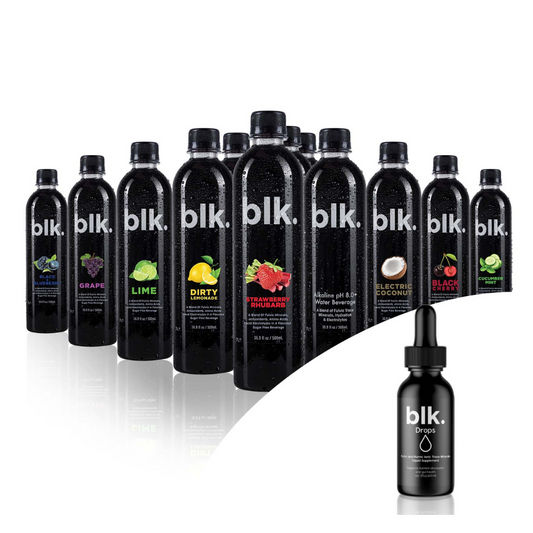
10 Best At-Home Workouts: Equipment-Free Home Exercises
- At-home workouts that do not require equipment
- Examples of exercises to do at home with no equipment
- Benefits of at-home exercises
- At-home exercises routine for specific groups
Workouts are essential to staying fit and improving general health and well-being. However, as opposed to what many think, not all workouts require equipment or going to the gym. Various workouts can be done at home and require no equipment at all. These workouts have proven effective, like their counterparts requiring equipment. Equipment-free home workouts are convenient, economical, relatively safe, and efficient. This article discusses the top 10 equipment-free workouts that can be done at home. Keep reading!
#10 High-Intensity Interval Training (HIIT)
HIIT is an aerobic exercise that involves working out at a very intense level, followed by short, slower rest intervals. These workouts are perfect for those who would instead work out in their living room. HIIT helps you build muscle, lose weight, and boosts your metabolism. With HIIT, your body burns calories for approximately 2 hours after training.
How to do a HIIT Workout at Home with no Equipment?
Most HIIT workouts take approximately 20 minutes, which enables you to do them even in the middle of your workdays, preferably during your break. During a HIIT workout, the work is as important as the rest. However, the work must be intense, and the rest must be used for recovery. Note that every round of HIIT workout should get more challenging, making it more fatiguing, with slower short rest intervals.
Below are some HIIT workouts you can do at home with no equipment. Do the following workouts for about 20 seconds with 10 seconds of rest repeatedly until you reach the 4:00 mark.
#9 Yoga
Yoga has no specific definition, although it is known to originate from the word "yug" which means to bind; as a result, the theme of yoga is connection. Scientifically, it has been proven that yoga improves flexibility, reduces stress, improves mental health, and increases strength. To get the most out of yoga, you must choose your yoga routine, create a comfortable spot, get a yoga mat, and practice it regularly while staying safe and preventing injury.
Some of the best yoga poses to do at home include;
#8 Pilates
Joseph Pilates created Pilates. This workout engages the whole body by aligning its structure and supporting the joints. Pilates provides optimal strength through muscle balance and fine-tuning neuromuscular patterns.
Below is a simple 20-minute Pilates workout you can do at home without equipment. It is recommended that you do three rounds of these Pilates.
- Standing roll-down: 5 reps
- Dynamic core plank series: 15 reps per leg
- Thigh stretch: 10 reps
- Kneeling side kick: 20 reps per leg
- Double-leg stretch: 10 reps
- Scissors: 10 reps per leg
- Hundred: 10 breath cycles
- Side teaser: 5 reps per side
- Swan: 6 reps
- Side leg series: 10 reps and 15 circles
- Roll-up: 5 reps
#7 Bodyweight Exercises
As the name suggests, bodyweight exercises are strength training exercises that use only your body weight as resistance. Body weight can be a perfect means to strengthen the body. Bodyweight exercises are suitable for beginners, intermediate, and advanced trainees.
Since bodyweight exercises are full-body workouts, below are some of the recommended exercises targeting specific body areas;
- Shoulders and arms( triceps,biceps) : extended arm movement, planks
- Chest: push-ups, up-down dog flow
- Back (upper, lower): tiger, locust, bridge rolls
- Legs (calves, inner/outer/front/back thighs): calf raises, jumping jacks, jump rope
- Core: leg raises, mountain climbers
Beginner 20-Minute Bodyweight Workouts at Home (3 Circuits)
- Bodyweight squats- 20 reps
- Push-Ups- 10
- Walking Lunges- 10 each leg
- Jumping jacks- 30
#6 Cardio Workouts
Cardio refers to any workout that will increase your heart rate for an extended time. Cardio workouts make the respiratory system work way harder due to faster and more deep breathing. Cardio workouts help with weight management, improve mood, increase lifespan, and help prevent heart disease.
Some of the best cardio exercises to do at home with no equipment include;
- Kickboxing- 10 minutes
- Jumping jacks- 10 minutes
- Jogging- 20 to 30 minutes
- Climbing stairs- 10 to 15 minutes
- Burpees -10 minutes
- Squat jumps- 10 to 15 reps
- Jumping rope- 20 minutes
#5 Resistance Band Workouts
Resistance band workouts are full-body workouts that beginners and advanced athletes can do. They involve the use of resistance bands to gain more strength. The most common types of bands are loops, tubing, and flat bands. The band's effectiveness depends on its stretchiness, which determines how much resistance it will provide.
Resistance band workouts may be incorporated into a full-body routine for optimal results. Below are some examples of workouts for specific body areas with the inclusion of resistance bands.
- Chest exercises: resistance band push-ups, chest fly
- Back exercises: exercise band row, lat pulldown
- Leg exercises: abduction with an extended leg, squat
- Arm exercises: exercise band curl, unilateral overhead extension
- Shoulder exercises: front raises, lateral raise
Advanced Trainee Resistance Band Workouts
- Resistance Band Lunge- 15 reps
- Resistance Band Overhead Press- 10 to 15 reps
- Resistance Band Push-Ups- 15 reps
- Resistance Band Chin-Ups- 15 reps
- Resistance Band Singe-Leg Deadlift- 15 reps each leg
#4 Plyometric Exercises
These workouts are also known as "jump training," but otherwise, plyometric exercises refer to aerobic exercises to increase endurance, speed, and strength. Plyometric exercises aim to exert muscles to their maximum potential quickly. They are preferably for advanced athletes or people in developed physical condition. This intense workout can tear ligaments, tendons, and lower-extremity joints; it is recommended that you have the fitness, mobility, and strength level to do them. Examples of plyometric exercises to do at home include;
Leg Exercises
2 to 3 sets of 10 reps
Upper Body Exercises
2 to 3 sets of 8 to 12 reps
#3 Core Workouts
As the name suggests, core workouts are designed to train your core. The core is the central part of the body and includes the stomach, hips, lower back, and pelvis. Besides the fact that core exercises require no equipment, they improve stability and balance, increase strength, tone abs, and help you achieve your fitness goals.
Beginner at Home with no Equipment Core Workouts:
You should do 5 repeats of each exercise shared below and then progress for up to 10 to 15 repetitions.
- Abdominal Crunch
- Bridge
- Single-leg core hold press
- Double-leg core hold press
- Segmental Rotation
- Quadruped Plus
- Side Plank
- Superman
#2 Isometric Exercises
These exercises hold the body in one position through the contraction of muscles without change in length. Isometric exercises are primarily designed to improve muscle building and increase strength. Tightening exercises are perfect for a home workout with no equipment since they use resistance from body weight.
15-Minute Beginner At-Home Equipment-Free Isometric Exercises
- Wall sit- 2 to 3 rounds
- High plank hold- 2 to 3 reps
- Overhead hold- 2 to 3 rounds
- Glute bridge- 2 to 3 rounds
#1 Calisthenics
Calisthenics is a low-resistance workout that uses body weight for resistance, thus perfect for an equipment-free home workout. They can be used as independent workouts, warm-up, or cool-down exercises. Your fitness level will determine how many repetitions of calisthenics you need. The benefits of calisthenics also depend on your fitness level, although, generally, these workouts are known to build muscle strength.
Examples include:
- Jumping jacks
- Trunk twists
- Lunges
- Chin-ups
Intermediate Calisthenics Workout Routine
- Headstand
- Back Plank
- Elevated Bridge
- Hanging Leg Raise
Conclusion
In this article, we have briefly discussed w10 of the best equipment-free home workouts. These workouts are recommended because they are convenient, economical, and efficient. They are also perfect for those with busy schedules or little time to work out. These exercises require no or easily available equipment such as skipping rope or resistance bands. To obtain optimal results, you can use different health and exercise Apps together with healthy drinks such as protein shakes.
Frequently Asked Questions
-
How many times per week should I do at-home workouts?
-
Are at-home workouts effective for weight loss?
-
What is the best time of day to do at-home workouts?
-
How long should an at-home workout be?
-
Do I need any equipment to do at-home workouts?




